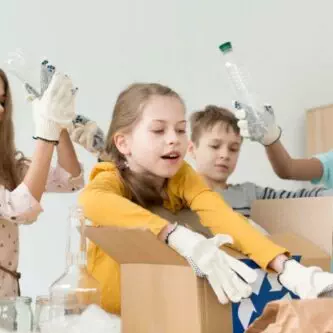
Personal hygiene is a very important part of daily life – one that should never be taken for granted. Not only does it keep our appearances in check, but it also promotes healthy living in terms of our physical health.
However, not everyone has the same standard for it, and this true for children especially. For kids, getting dirty is almost routine, and there is not a lot of emphasis on staying clean – an attitude that will have to change for their own good.
Start them young
There is no doubt about the importance of performing tasks that promote bodily cleanliness, and parents should be quick in educating their children about it. Doing so will help kids forge hygienic habits early on – most of which will persist even when they reach adulthood.
However, staying clean is not just all about bathing every day. There are other parts of the body that need equal attention, which means that, ideally, a regimen should be followed to ensure that no one part is left to accumulate dirt.
How to set up a cleaning routine
First and foremost, cover the basics of bathing. Children 5 years old and above are usually capable enough to be able to bathe on their own, although parental supervision is still recommended when they try to do so. Still, it is best to keep in mind that there is no actual age as to when children are set to be ready to bathe on their own. Allow your child to self-bathe once you are sure that they are capable of moving around in the bathroom without the fear of injury.
Once they begin learning to bathe, the best thing to teach first is how to scrub as this is the easiest step of the whole process. Using a mild soap, guide them on how to go about the cleaning themselves, making sure not to leave out all the traditionally dirt-prone areas such as the nape, the neck, the underarms, and the back of the ears. After that, teach them to rinse as well.
Shampooing, on the other hand, is a slightly more complicated matter. Parents should take care to always assist during this part while not pushing to do it every day. That is because constant shampooing has the unfortunate effect of hair damage, especially when done without conditioning. That said, make sure to always check on your child’s head before bathing so you can assess whether or not they need the wash.
Keep the skin smooth and soft
Hygiene should not end in the bathroom. Skin care is also paramount when it comes to bodily hygiene. Keep it in a good state and void rashes, bumps, itches, or scars by:
- Moisturizing daily. Apply lotion or skin butter to areas where the skin is dry, keeping the skin from chafing.
- Avoiding scratching. It is natural for children to develop itches – insect bites especially. Keep your child from scratching the itchy area by trimming their nails down and by covering the affected area with a bandage. It also helps to simply tell them not to scratch.
- Washing at the end of the day. Before going to bed, give their face and arms a nice warm wash with mild soap to ensure that they go to bed in pristine condition. A quick shower will do too.
Maintain the pearly whites
Kids love their candy, and with that comes the need for them to maintain their teeth all the more. Proper oral hygiene – such as brushing one’s teeth, gargling, and flossing – should be taught at an early age in order to cement the habit as a daily necessity properly.
Not taking care of one’s mouth could result in a wide range of negative effects such as rotting teeth, cavities, mouth sores, and smelly breath.
Personal hygiene is not a difficult thing to teach to children, especially if they see it practiced by their parents too. It could even be used as a means to bond with the child; perhaps initiate play during bath time or set up a daily routine where you both do the same body maintenance activities together. In the end, there are no downsides to keeping clean, so try it today!






 logo.png)



